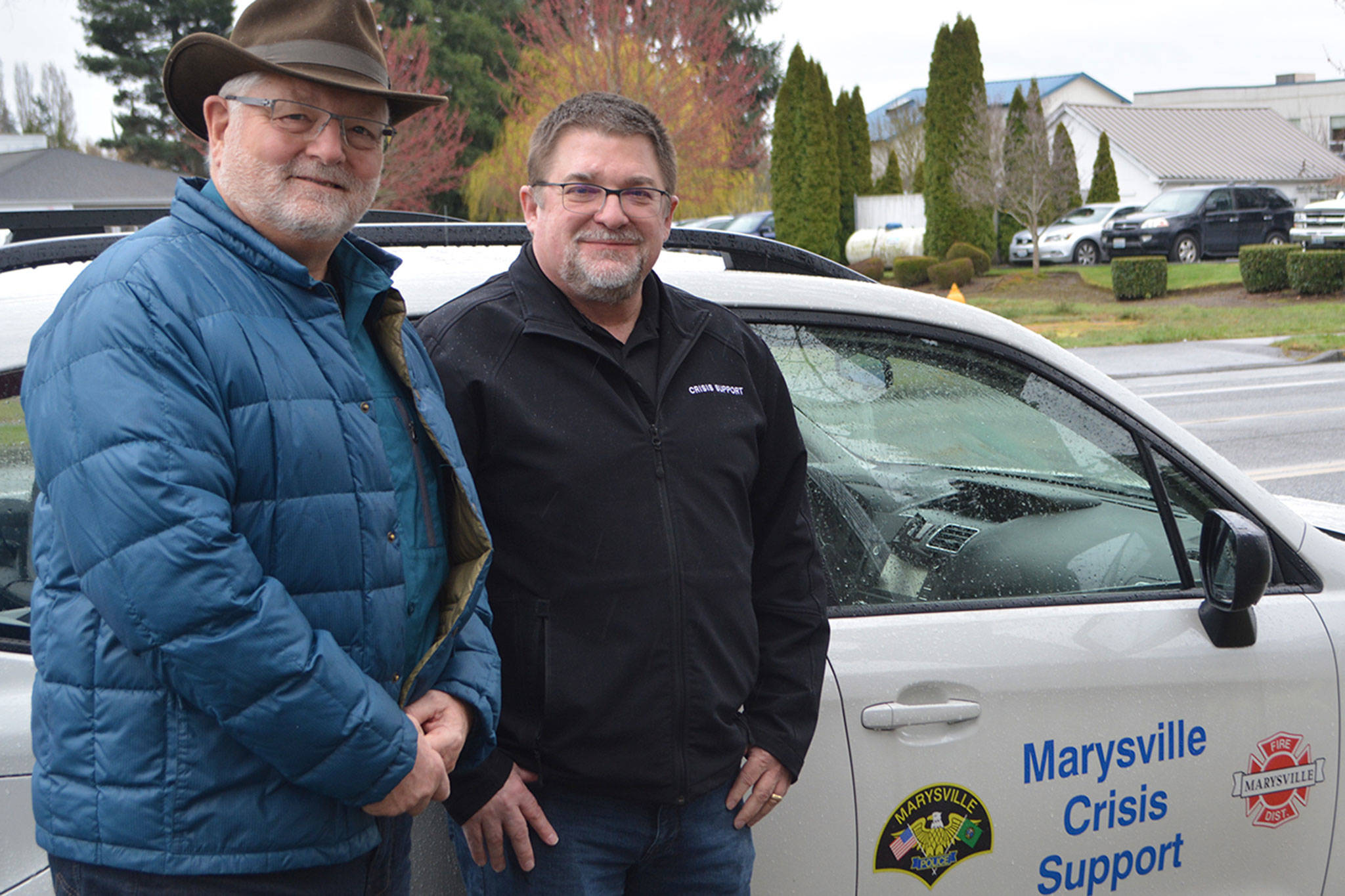MARYSVILLE – Marysville Crisis Support Services needs support for its own crisis.
The city and Marysville School District received a major grant for the program in 2015, but it ended last July.
“Now we are on our own,” said Tom Albright, a school board member who is on the crisis support team.
In an effort to keep it going, it has received donations from both Rotary Clubs in town, and also funds from a music fund-raiser. A church has given $125 a month and many individuals from $20-$50 a month. The Marysville-Pilchuck Recovery Fund and some businesses also have donated. The program extends to Tulalip, and the tribe there also has provided money.
“We’re just scratching by,” Albright said.
There are basically two parts to the program.
One part works with the public. Six volunteers, mostly retired pastors, are in contact with police and fire. If there is a death, the one who is on-call responds to the incident. They provide counseling and also advice on how to proceed. The volunteer chaplains will provide spiritual support, but only if requested.
“About 95 percent of the time it never comes up,” Albright said, adding it’s mostly for emotional and psychological support.
He said residents love getting help during a crisis.
“They say, ‘I didn’t know Marysville police provided this service,’” Albright said. “It’s a well-kept secret.”
The other part of the program is counseling for police and fire personnel themselves. That requires even more training and Greg Kenehan holds that position.
“Volunteers don’t have time to build relationships with police and fire,” Albright said. “Greg does.”
Kanehen, who also coordinates the volunteers, has an office within the police station. He works to earn their trust.
“The last thing police want to do is to go to a counselor, unless it’s already too late,” Albright said.
But Kanehen is making progress.
“We want to keep that going,” Albright said. “That’s the half that needs funding.”
Until the city and schools can help with funding, the program is in need of donations. People can give online at facebook.com/marysvillecss, at macss.org
The program has gone after state and federal grants, but most of those don’t cover a salary position.
“Mental health of first responders is not a high priority” for grants, Kanehan said.
The volunteer program has been going on for about 30 years, starting with Dennis Niva. John Mason followed him and later it because a full-fledged unit. Victor Rodriguez of United Free Methodist Church helped expand the program. The team now consists of Albright, Kenahan, Mason, Niva, Dan Hazen and Jeff Hastings, with Scott Wykes in training. Rodriguez has retired.
They said there are a lot of chaplain wannabees who show up during a tragedy, but they are asked to leave. “The department only uses vetted chaplains,” Albright said, adding crisis support officers takes polygraphs and all kinds of training, such as in stress management.
Since the tragedies where 43 people died in the Oso Slide and five were killed in the shootings at Marysville-Pilchuck, they said an emphasis has shifted to helping first-responders.
They said just being on scene can be calming for officers and victims. “It’s a relief when we arrive on scene,” Albright said. “In the fifteen years I’ve been doing this, I’ve seen police being caring and supporting but that’s out of their comfort zone. The new generation of officers coming in is more compassionate.”
They said they will just get busier as the population ages.
They can stay up to five days to help if requested. They can help relieve legal tension is there is not will, etc.
“People don’t know how to deal with death,” Albright said. “We can help make arrangements between the family and funeral home.”



